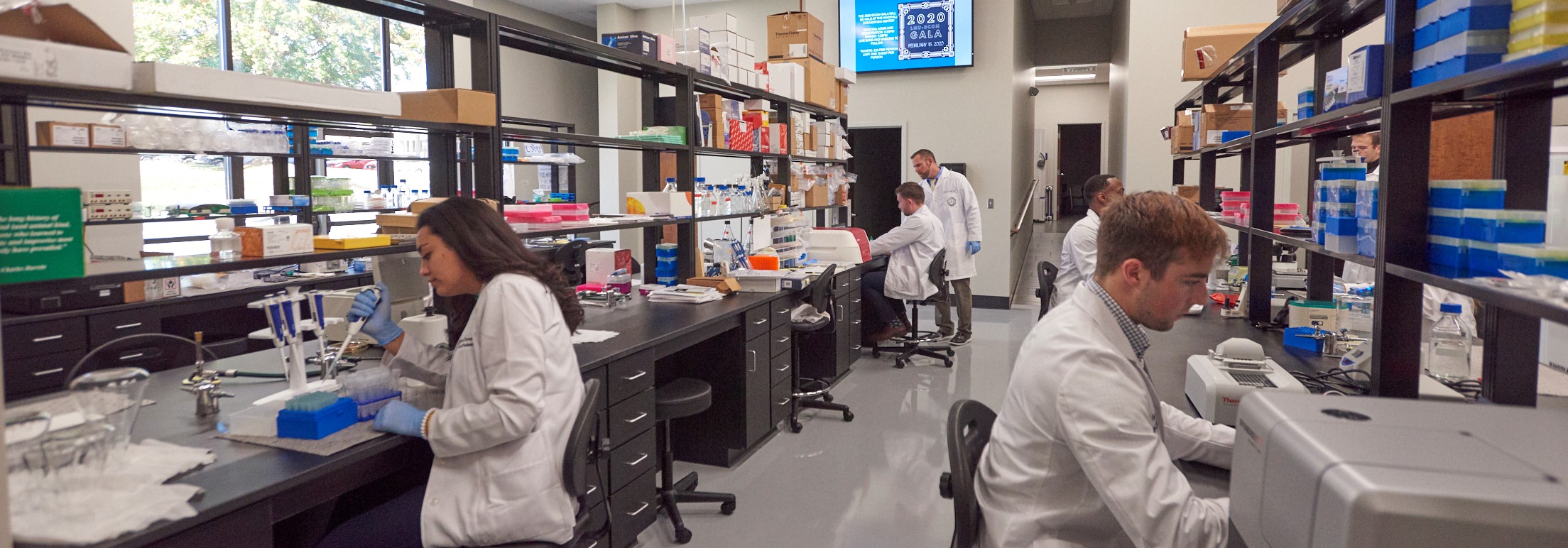The Center for Innovation in Veterinary Education and Technology (CIVET) was established by the vanguard thinkers at Lincoln Memorial University's College of Veterinary Medicine to incite and support the dynamic improvement of veterinary education. CIVET is a diverse group that includes researchers investigating novel veterinary educational methods, disruptors of traditional didactic lectures, creators of models for clinical skill simulations and assessments, and front-line clinical educators. These CIVET investigators of change aim to find and share creative solutions to the modern challenges of delivering veterinary education.
The Center for Infectious, Zoonotic, and Vector-borne Diseases (CIZVD) is a multidisciplinary research center dedicated to advancing knowledge, prevention, and control of pathogens that impact both human and animal health. Our work spans bacterial, viral, and parasitic diseases of public health importance, with expertise in leptospirosis, canine heartworm disease, viral pathogenesis, Cache Valley fever, and tick-borne infections. Through integrated laboratory research, field surveillance, and collaborative partnerships, we aim to reduce disease burden, improve diagnostics, and develop innovative prevention and treatment strategies.
Aligned with Lincoln Memorial University's mission to enrich the lives of people and communities in the Appalachian region, the Human Animal Research Team of Appalachia (HART of Appalachia) is being established at the College of Veterinary Medicine. This project aims to deepen our understanding of the relationship between animals and people in rural communities. The bond between humans and animals improves health, wellbeing, and welfare for both people and their animal companions. HART will build on existing research in this area, exploring various benefits of human-animal interactions and identifying barriers to these relationships, especially in rural settings.
The Metabolomics Unit at LMU serves as a core research facility, offering advanced lipidomics and metabolomics capabilities to both internal and external collaborators. Equipped with a high-resolution mass spectrometric platform capable of analyzing over 30,000 unique lipids across 188 lipid families, the unit is dedicated to defining novel disease biomarkers and identifying new therapeutic targets. Ongoing projects span diverse areas, including microbial lipid profiling, cancer biomarker discovery, neuropsychiatric disease research, equine health, climate change impact studies, and the characterization of unique lipid families with anti-inflammatory and neuroprotective properties.
The Center for Animal and Human Health in Appalachia (CAHA) at the Richard A. Gillespie College of Veterinary Medicine (established in 2015) focuses on animal and public health issues in Appalachia, which constitute unique physical and social environments. Thus, we address problems using a One Health approach and conduct research across a wide array of One Health topics with implications within the Appalachian region.
At LMU-CVM, clinical research is actively advancing knowledge in areas that matter most to veterinary medicine and have a direct impact on improving animal health. Faculty and collaborators engage in studies that translate research findings into practical solutions for veterinary practice. These efforts not only enhance the quality of care provided to animals but also contribute to the broader understanding of diseases and therapies in both companion and production animal species. Click here for the most current list of LMU-CVM's clinical research publications.

